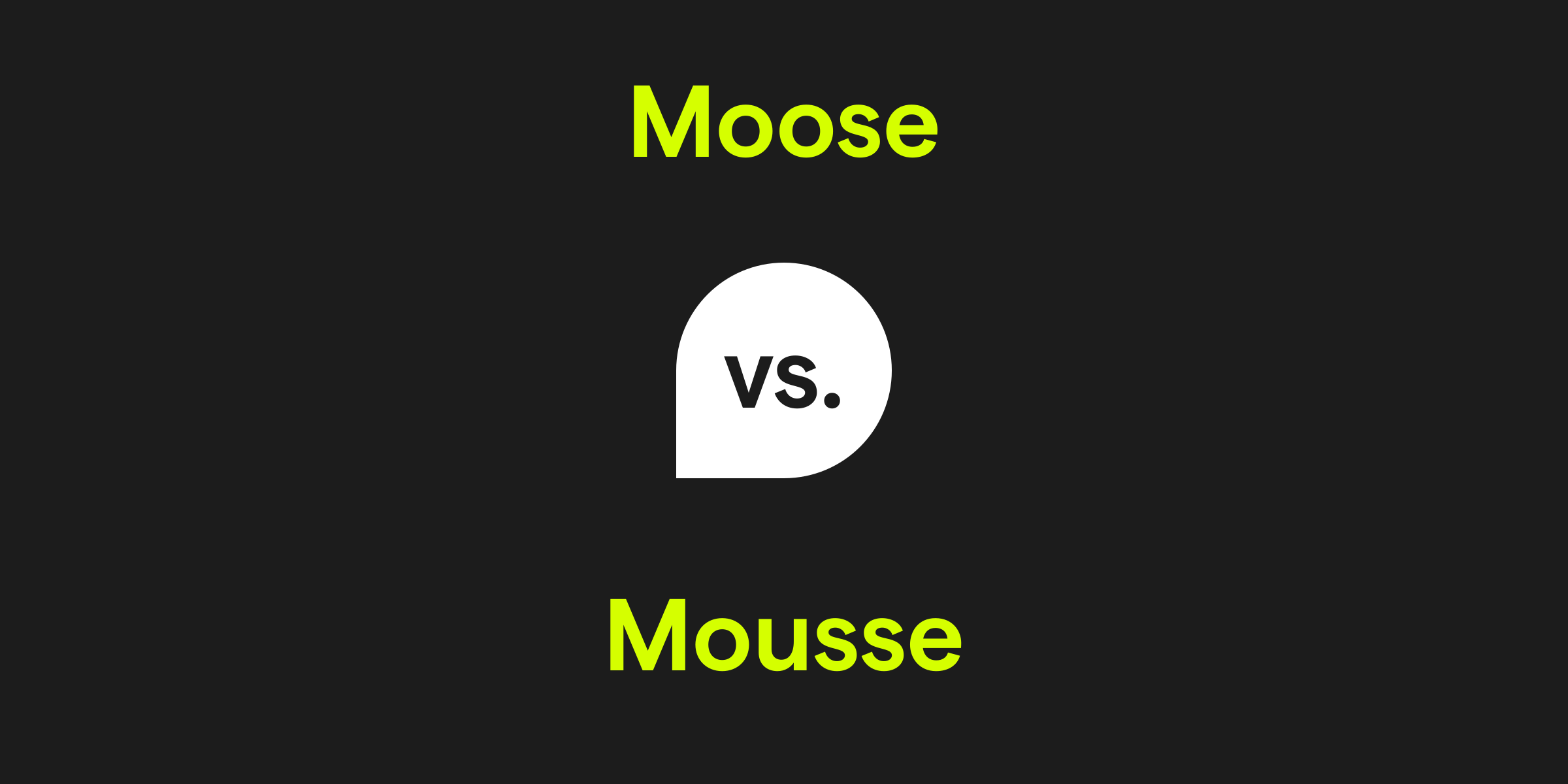Moose vs. Mousse: What's the Difference?
The words moose and mousse are classic examples of homophones – words that sound the same but have different meanings. A moose is a large mammal known for its antlers, commonly found in North American forests. Mousse, on the other hand, refers to a light, airy dish that can be sweet or savory, often used in cooking as a dessert or an addition to a meal.

How do you use the word moose in a sentence?
When using moose in a sentence, it typically refers to the animal itself. Moose are known for their impressive size and distinctive antlers, making them a favorite subject of nature enthusiasts and wildlife photographers. The word is used as a noun in the singular and plural form.
Examples of moose in a sentence
- A moose was spotted drinking from the lake at dusk.
- Hikers must be cautious during the mating season, as moose can become quite aggressive.
- The wildlife preserve is home to a small herd of moose, which visitors can observe from a safe distance.
How do you use the word mousse in a sentence?
Mousse is used when referring to a creamy dish with a whipped texture, and is often mentioned in the context of cooking or dining. As a culinary term, it describes both sweet and savory dishes and is commonly used as a noun. It can denote a chocolate dessert or a foamy hair product, depending on the context.
Examples of mousse in a sentence
- She finalized the dinner with a decadent chocolate mousse that delighted all the guests.
- The chef highlighted the salmon mousse as the appetizer special for the evening.
- He applied mousse to his hair to maintain the styled look throughout the day.
Moose and mousse definition, parts of speech, and pronunciation
Moose definition:
A moose is a large animal from the deer family with long legs, a humped shoulder, and large antlers. It is native to northern forests in North America, Europe, and Asia.
Moose parts of speech:
Moose pronunciation:
Moose is pronounced as /mo͞os/, sounding much like the word 'goose' but with an 'm' at the beginning.
Mousse definition:
Mousse is a light, whipped preparation used in various culinary applications, including desserts and hair or skin products, characterized by its bubbly texture.
Mousse parts of speech:
Mousse pronunciation:
Mousse is pronounced as /mus/, with a sound similar to that of the word 'juice'.
A moose is a large animal from the deer family with long legs, a humped shoulder, and large antlers. It is native to northern forests in North America, Europe, and Asia.
Moose parts of speech:
- Noun: We saw a moose cross the road while driving through the national park.
- Noun (plural): Moose are known for their ability to swim great distances.
Moose pronunciation:
Moose is pronounced as /mo͞os/, sounding much like the word 'goose' but with an 'm' at the beginning.
Mousse definition:
Mousse is a light, whipped preparation used in various culinary applications, including desserts and hair or skin products, characterized by its bubbly texture.
Mousse parts of speech:
- Noun: The recipe calls for using chocolate mousse as the pie filling.
- Noun: A good mousse can keep your hairstyle in place for hours.
Mousse pronunciation:
Mousse is pronounced as /mus/, with a sound similar to that of the word 'juice'.
Moose vs. Mousse in a nutshell
Although the words moose and mousse are homophones with similar pronunciation, their meanings are worlds apart. A moose is a majestic animal known for its size and antlers, whereas mousse can refer to a fluffy dish enjoyed as a dessert or a styling product for hair. Know these differences to avoid mix-ups and to use the words accurately in conversation and writing.
Get AI Writing Assistance Wherever You Type
Make sure your vocabulary is on point and every punctuation mark is in the right place, no matter where you’re working. Grammarly works across more than 1 million websites and apps so you can improve your writing without copying, pasting, or breaking focus.

More Commonly Confused Words
Interest piqued? Pore (not pour) over other commonly confused words to help your writing reach peak (not peek) performance.